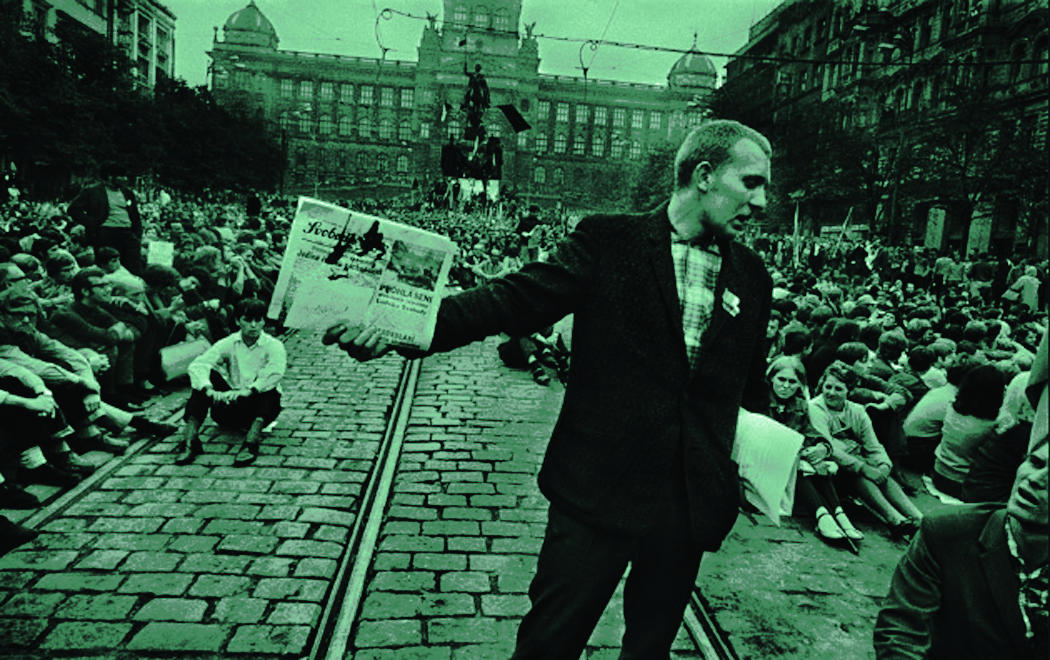
- This event has passed.
Prague Spring: 50 Years Later

with Pete Dolack
Histories of the 1968 Prague Spring tend to focus exclusively on the drama inside the leadership of the Czechoslovak Communist Party and the personality of reformer Alexander Dubček. The fuller story of the Prague Spring is the grassroots movement for workers’ control of industry and economic democracy.
Although reformers within the Communist Party sought significant reforms to the overly centralized system copied from the Soviet Union, including advocacy of workers’ councils, there were significant differences between the more modest reforms put forth by Czechoslovak economists and the more thorough-going concepts of activists and workers themselves.
This was a true grassroots effort, mostly organized by trade union officials and rank-and-file Communist Party members. One interesting wrinkle is that unions, representing members as individuals and freed from state control, would continue to exist alongside the workers’ councils. All this was to happen in a socialized economy in which formal ownership would continue to reside with the state but in which state and party control would be drastically curtailed.
In this conception, which began to be implemented in some of the country’s biggest enterprises, the workforce as a whole would meet in assemblies to decide broad policies and freely elect a council from their ranks that would coordinate management. Each worker would be a part of the enterprise assembly and be members of independent unions that would represent workers as individuals in disputes with the collective or with higher administrative bodies. Thus each half of the duality would be represented through separate institutions.
Statutes had been developed in several factories across the country, and a national conference that sought to codify a system of workers’ control took place in which approximately one-sixth of the country’s workers were represented, before the experiment began to be shut down. Naturally, such a well-developed movement did not spring into being spontaneously, but rather was the product of earlier experiments, years of debate, and memories of councils established in the 1940s. In part, it was also an attempt at reversing several years of economic stagnation, a stagnation that signaled that the model imposed by the Soviet Union had reached its limits.
Pete Dolack is the author of It’s Not Over: Learning From the Socialist Experiment, a study of the 20th century’s attempts to transcend capitalism that includes a chapter analyzing the Prague Spring and the workers’ control movement. He is at work on his second book, focused on economic democracy, and writes the Systemic Disorder blog, which discusses the ongoing economic crisis of capitalism and the environmental and political issues connected to it. His writings also appear in popular outlets including CounterPunch and ZNet.
